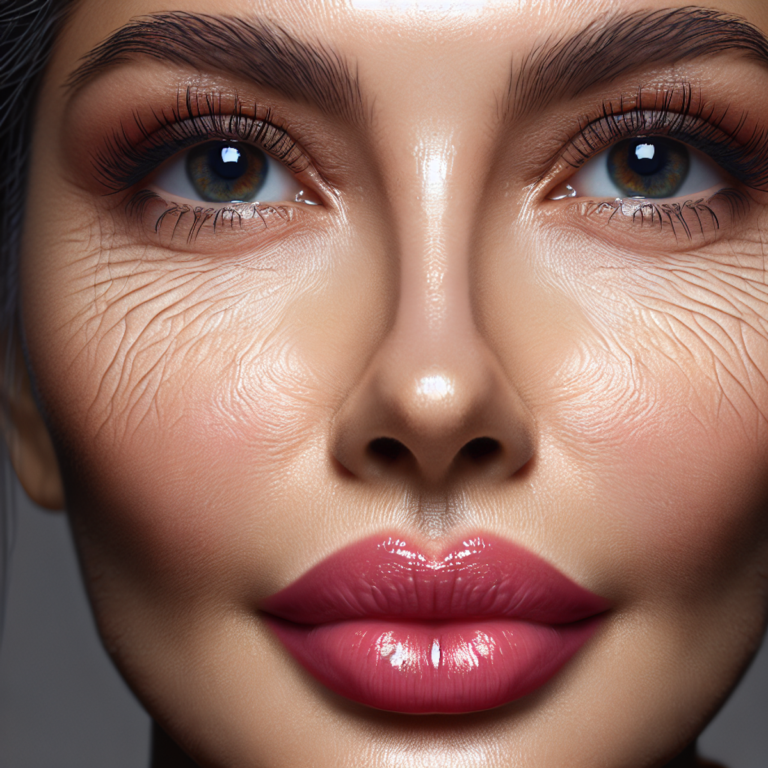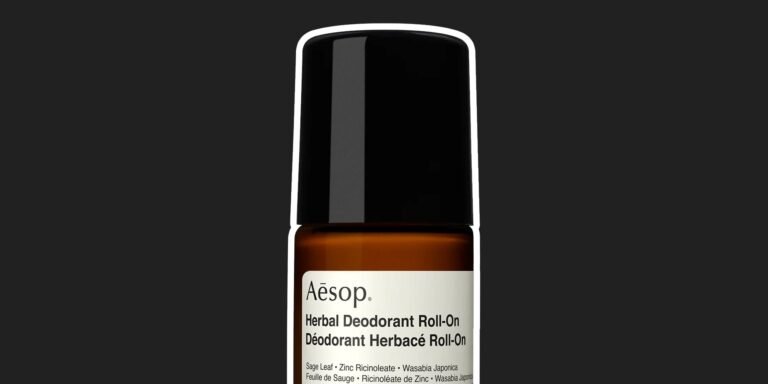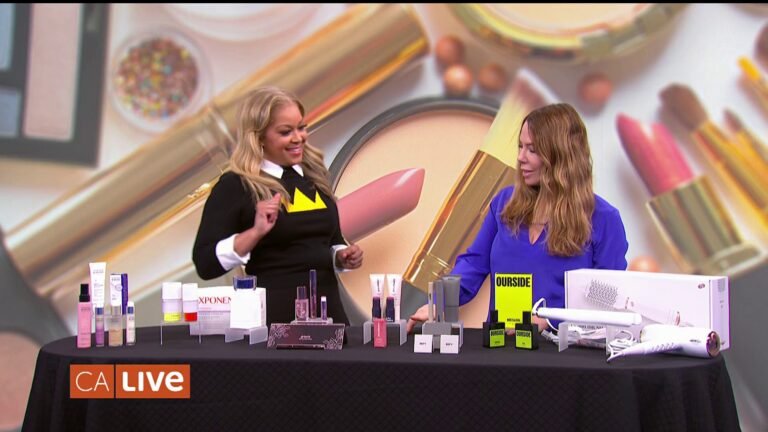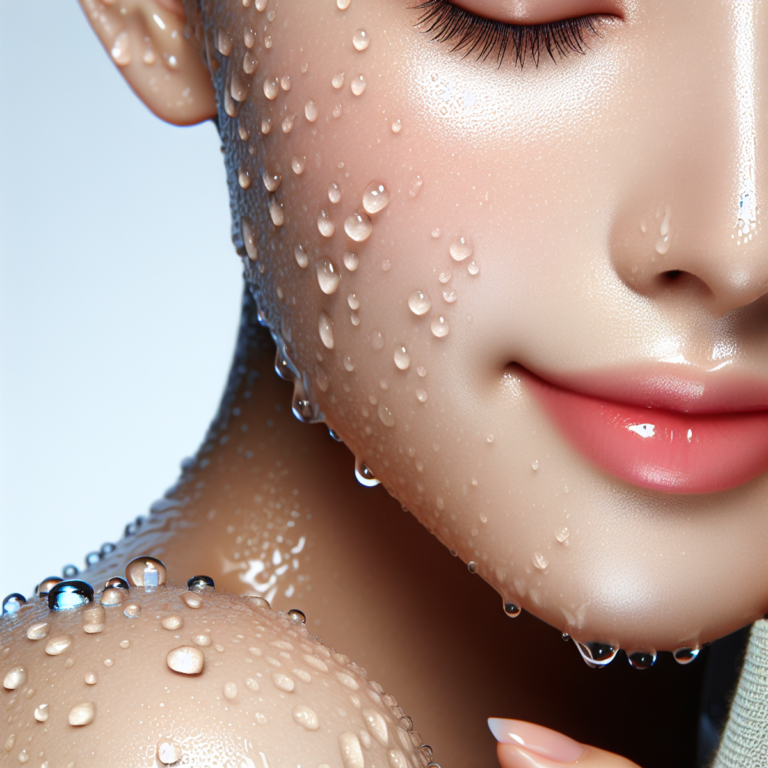Tips to Combat Acne

Introduction
Acne is a common skin condition that affects millions of people worldwide. It is characterized by the presence of pimples, blackheads, and whiteheads on the face, chest, and back. While acne is often associated with adolescence, it can also affect adults of all ages.
The impact of acne on individuals goes beyond physical appearance. It can have a significant emotional and psychological toll, leading to low self-esteem, anxiety, and even depression. Understanding the causes of acne and taking a comprehensive approach to fight it effectively is crucial for improving skin health and overall well-being.
Acne happens when hair follicles get clogged with oil, dead skin cells, and bacteria. Many factors contribute to acne development, including hormonal changes, excessive oil production, inflammation, and bacterial infection. These factors can be influenced by genetics, lifestyle choices, and environmental factors.
To effectively fight acne and get clear skin, it’s important to deal with both the root causes and symptoms. In this article, we will discuss various tips and strategies that can help you manage acne and prevent future breakouts:
- Maintaining a consistent skincare routine
- Exploring over-the-counter acne products
- Managing stress levels
By adopting a holistic approach to skincare and making informed choices about your lifestyle habits, you can take control of your acne and achieve healthier, clearer skin. Let’s dive into these tips to combat acne effectively.
Understanding Acne
Acne is a common inflammatory skin problem that affects people of all ages. It is characterized by pimples, blackheads, and cysts on the face, neck, chest, and back. Several factors contribute to the development of acne, including clogged hair follicles, hormonal changes, and bacterial infection.
Defining Acne
Acne occurs when the hair follicles become clogged with oil and dead skin cells. This leads to the formation of comedones, which can appear as either whiteheads or blackheads. When bacteria like Propionibacterium acnes multiply within these blocked follicles, it causes inflammation in the skin, resulting in papules, pustules, nodules, or cysts.
Root Causes of Acne
Understanding these underlying mechanisms is crucial for developing effective strategies to treat acne and keep the skin healthy:
- Hair Follicle Plugging: The buildup of sebum (oil) and dead skin cells inside the hair follicles contributes to acne formation.
- Hormonal Fluctuations: Changes in hormone levels, especially during puberty, menstruation, pregnancy, and menopause, can increase sebum production and worsen acne.
- Bacterial Infection: The presence of bacteria within clogged pores intensifies inflammation and plays a role in acne development.
Tip 1: Maintain a Consistent Skincare Routine
A consistent skincare routine plays a crucial role in preventing acne breakouts. By following proper techniques for face washing and using the right products for your acne-prone skin, you can effectively manage and minimize the occurrence of acne. Here are some key points to keep in mind:
Face Washing Techniques
When washing your face, it’s important to use gentle motions and avoid scrubbing too harshly, as this can irritate the skin and potentially worsen acne. Instead, opt for a mild cleanser that is specifically formulated for acne-prone skin. Gently massage the cleanser onto your face using your fingertips, then rinse with lukewarm water. Pat your skin dry with a clean towel instead of rubbing it vigorously.
Product Recommendations
There are numerous skincare products available on the market that cater to acne-prone skin. Look for products containing ingredients like benzoyl peroxide or salicylic acid, as these can help unclog pores and reduce inflammation. Additionally, consider using a noncomedogenic moisturizer to hydrate your skin without clogging pores.
Pro Tip: When choosing skincare products, it’s essential to read labels carefully and select those that are specifically designed for acne-prone skin. Look for terms like “noncomedogenic” or “oil-free” to ensure the product won’t further contribute to breakouts.
By maintaining a consistent skincare routine that includes proper face washing techniques and using suitable products, you can significantly reduce the occurrence of acne breakouts. Remember that consistency is key, so make it a habit to follow your skincare routine diligently every day.
Tip 2: Explore Effective Over-the-Counter Acne Products
Exploring effective over-the-counter acne products can be a game-changer in your journey to combat acne. These products often contain key ingredients that target acne-causing factors such as bacteria, excess oil, and inflammation. When selecting over-the-counter products, keep an eye out for the following key ingredients:
- Benzoyl Peroxide: Known for its antibacterial properties, benzoyl peroxide effectively kills the bacteria that contribute to acne breakouts. It also helps in unclogging pores and reducing inflammation.
- Salicylic Acid: This beta hydroxy acid (BHA) is excellent for exfoliating the skin and keeping pores clear. It penetrates deep into the pores to remove excess oil and dead skin cells, preventing acne formation.
- Sulfur: With its mild peeling and antibacterial properties, sulfur is effective in treating whiteheads and blackheads. It also helps reduce oiliness in the skin.
- Retinoids: Over-the-counter retinoid creams or serums contain vitamin A derivatives that promote skin cell turnover, preventing clogged pores and reducing acne lesions.
- Glycolic Acid: As an alpha hydroxy acid (AHA), glycolic acid exfoliates the skin, promotes cell turnover, and helps improve the overall texture of the skin, including reducing acne scars.
When exploring over-the-counter acne products, it’s essential to consider your skin type and any potential sensitivities or allergies you may have. Additionally, it’s advisable to introduce new products gradually to monitor how your skin responds to them. Always consult with a dermatologist if you have any concerns about specific ingredients or their compatibility with your skincare routine.
By incorporating these key ingredients into your skincare regimen, you can effectively target acne at home and work towards achieving clearer, healthier skin.
Tip 3: Protect Your Skin from the Sun
Sun exposure can have a significant impact on acne prevention and overall skin health. Here are some key points to consider:
- Relationship between Sun Exposure and Acne Prevention: While spending time in the sun can initially improve acne symptoms due to the drying effect of UV rays, prolonged exposure can lead to negative consequences. Sun exposure stimulates the production of melanin, which can cause the skin to thicken and potentially worsen acne. Additionally, it can lead to post-inflammatory hyperpigmentation, making acne scars more noticeable.
- The Importance of Wearing an SPF: Using a sunscreen with a sun protection factor (SPF) is crucial in protecting your skin from harmful UV rays. Look for a broad-spectrum sunscreen that shields against UVA and UVB rays. It’s recommended to use a minimum of SPF 30 and apply it generously to all exposed skin, including the face. Reapply every two hours or more frequently if sweating or swimming.
Remember, protecting your skin from the sun not only aids in acne prevention but also reduces the risk of premature aging and skin damage. Incorporating SPF into your daily skincare routine is a proactive step towards maintaining healthy, clear skin.
Tip 4: Be Mindful of Your Diet
Maintaining a healthy diet is not only important for your overall well-being, but it can also have a significant impact on the health of your skin, including acne prevention. While there is no definitive list of foods that cause acne, certain dietary choices may contribute to breakouts in some individuals. Here are some key points to keep in mind when it comes to your diet and acne:
- Limit High-Glycemic Foods: High-glycemic foods, such as refined carbohydrates and sugary snacks, can cause a rapid increase in blood sugar levels. This spike in blood sugar can lead to increased insulin production, which may trigger the production of sebum and inflammation, both of which can contribute to acne breakouts. Opt for whole grains, fruits, and vegetables instead of processed foods to help maintain stable blood sugar levels.
- Reduce Dairy Intake: Some studies suggest a potential link between dairy consumption and acne. It is believed that hormones present in milk products may contribute to the development of acne. If you suspect that dairy products are affecting your skin, try reducing your intake or switching to non-dairy alternatives.
- Avoid Trigger Foods: While the relationship between specific foods and acne varies from person to person, some individuals find that certain foods exacerbate their breakouts. Common trigger foods include chocolate, greasy or fried foods, and foods high in saturated fats. Pay attention to how your skin reacts after consuming these types of foods and consider reducing or eliminating them from your diet if you notice a correlation.
- Stay Hydrated: Drinking an adequate amount of water throughout the day is essential for maintaining healthy skin. Water helps flush out toxins from the body and keeps the skin hydrated, promoting a clear complexion. Aim to drink at least 8 glasses of water daily.
Remember, everyone’s body is unique, and what works for one person may not work for another. If you suspect that certain foods are contributing to your acne breakouts, try eliminating them from your diet for a few weeks and monitor any changes in your skin. It may also be helpful to keep a food diary to track which foods seem to trigger breakouts in your specific case.
By being mindful of your diet and making healthier choices, you can support your skin’s overall health and potentially reduce the occurrence of acne breakouts.
Tip 5: Manage Stress Levels
Stress can significantly impact acne formation. When you’re stressed, your body releases cortisol, a hormone that can increase oil production in the skin and lead to breakouts. Therefore, managing stress is crucial in fighting acne. Here are some practical techniques for stress management:
1. Mindfulness and Meditation
Engaging in mindfulness practices or meditation can help reduce stress levels, promoting overall well-being and potentially minimizing acne flare-ups.
2. Regular Exercise
Physical activity is not only beneficial for your overall health but also for your skin. Exercise helps reduce stress and promotes better blood circulation, which can contribute to a healthier complexion.
3. Healthy Lifestyle Choices
Making positive lifestyle choices such as getting enough sleep, eating a balanced diet, and doing activities you enjoy can all contribute to stress reduction.
In addition to stress management, exercise plays a vital role in promoting healthy skin. Regular physical activity can:
- Improve blood flow, carrying oxygen and nutrients to the skin
- Assist in the removal of toxins
- Promote the production of endorphins, which are known to reduce stress levels
By incorporating stress management techniques and regular exercise into your routine, you can take proactive steps towards fighting acne from within. For more information on stress management strategies, you may refer to resources provided by the Mental Health Foundation or consult with a reputable dermatologist like those at Los Angeles Dermatologist who can offer specialized advice on managing stress for healthy skin.
Knowing When to Seek Professional Help
Seeking professional help for acne is important in certain situations where over-the-counter treatments may not be sufficient. Here are some indications that it’s time to consult a dermatologist for your acne concerns:
- Persistent Acne: If your acne persists after 6-8 weeks of consistent use of over-the-counter treatments, it may be a sign that you need professional intervention. Dermatologists can assess your skin condition and recommend appropriate medical treatments tailored to your specific needs.
- Moderate to Severe Acne: If you have moderate to severe acne, characterized by widespread breakouts, deep cysts, or nodules, it is advisable to seek dermatologist consultation. Over-the-counter products may not provide the level of efficacy required for effective control of more severe forms of acne.
- Acne Scarring: If you are experiencing acne scarring, it is best to consult with a dermatologist who can recommend suitable treatment options. Dermatological procedures such as laser therapy or chemical peels can help reduce the appearance of scars and improve skin texture.
Understanding the limitations of treating acne with over-the-counter products is also crucial. While these products can be effective for mild cases of acne, they may not address the underlying causes or provide optimal results for more severe forms. Dermatologists have access to prescription-strength medications and advanced treatment options that can effectively target stubborn acne.
Remember, every individual’s skin is unique, and what works for one person may not work for another. A dermatologist can provide personalized guidance and develop a tailored treatment plan based on your specific skin type and concerns. So don’t hesitate to seek professional help if you find that your acne is persistent, severe, or causing scarring – a dermatologist’s expertise can make a significant difference in managing your acne effectively.
Medical Treatment Options for Acne
When it comes to managing acne, medical interventions can play a crucial role in providing effective treatment. Prescription topical medications, oral medications, and procedural interventions offer different approaches to address acne concerns. Here are some key points to consider:
1. Prescription Topical Medications
These medications are applied directly to the skin and work by targeting the root causes of acne. They may contain ingredients such as retinoids, antibiotics, or a combination of both. Some examples include:
- Retinoids: These vitamin A derivatives help unclog pores and reduce inflammation. They can be beneficial for both inflammatory and non-inflammatory acne.
- Topical Antibiotics: These medications help control the growth of bacteria on the skin, reducing inflammation and preventing new breakouts.
- Combination Therapies: Certain prescription topicals combine different active ingredients to target multiple factors contributing to acne.
2. Oral Medications
In some cases, dermatologists may prescribe oral medications to manage acne that is more severe or resistant to topical treatments. These medications work internally to address the underlying causes of acne. Common oral medications include:
- Oral Antibiotics: Oral antibiotics can help reduce inflammation and control the growth of bacteria that contribute to acne.
- Hormonal Therapy: For individuals with hormonal acne, hormonal therapy may be recommended to regulate hormone levels and reduce breakouts.
- Isotretinoin: This powerful medication is reserved for severe cases of acne that haven’t responded well to other treatments. It can have significant side effects and requires close monitoring by a dermatologist.
3. Procedural Interventions
Dermatologists also offer various procedural treatments to manage acne and improve the appearance of acne scars. Some common procedures include:
- Laser Therapy: Laser treatments work by targeting specific areas of the skin affected by acne. They can help reduce inflammation, control oil production, and stimulate collagen production for smoother skin.
- Chemical Peels: Chemical peels involve the application of a chemical solution to the skin, which helps exfoliate the outer layers and improve the overall texture and appearance of the skin.
- Microneedling: This minimally invasive procedure uses tiny needles to create controlled micro-injuries in the skin, stimulating collagen production and reducing the appearance of acne scars.
It’s important to note that medical interventions for acne should be prescribed and monitored by a qualified dermatologist. They will assess your specific condition and recommend the most appropriate treatment plan tailored to your needs. Combining medical treatments with consistent skincare practices can provide effective results in managing acne and improving overall skin health.
Addressing Acne Scars with Dermatological Procedures
Acne Scar Treatments
Dealing with acne scars can be a significant concern for individuals who have struggled with acne. It’s essential to understand the different types of acne scars and the available dermatological procedures for effective treatment.
Types of Acne Scars
- Atrophic scars: These are characterized by a loss of tissue, resulting in a depressed area on the skin. They are further classified as ice pick, boxcar, or rolling scars.
- Hypertrophic scars: These scars involve excess tissue formation, leading to a raised or bumpy appearance on the skin.
Dermatological Procedures for Treatment
- Laser resurfacing: This procedure uses high-energy light to remove damaged skin and stimulate the growth of new skin cells. It can effectively improve the appearance of atrophic acne scars.
- Microneedling: Also known as collagen induction therapy, microneedling involves using fine needles to create micro-injuries in the skin, triggering the body’s natural healing process and promoting collagen production. This procedure is beneficial for treating atrophic scars and improving overall skin texture.
These dermatological procedures offer promising results in addressing various types of acne scars, providing individuals with renewed confidence in their skin’s appearance.
Conclusion
Incorporating the tips mentioned above into your skincare routine can help combat acne and improve the overall health of your skin. Remember, consistency is key when it comes to seeing results. Here are some final words of encouragement:
- Take a comprehensive approach: Acne is a complex condition that requires a multi-faceted approach. By addressing factors such as skincare, diet, stress management, and seeking professional help when needed, you can tackle acne from different angles.
- Stay consistent: Establishing a regular skincare routine and sticking to it is crucial for preventing acne breakouts. Make sure to cleanse your face twice a day using gentle products, avoid harsh scrubbing, and moisturize with noncomedogenic formulas.
- Explore over-the-counter options: Over-the-counter acne products can be effective in managing mild to moderate acne. Look for ingredients like benzoyl peroxide and salicylic acid, which help to unclog pores and reduce inflammation.
- Protect your skin from the sun: Sun exposure can worsen acne and cause skin damage. Always wear sunscreen with broad-spectrum protection and an SPF of 30 or higher to shield your skin from harmful UV rays.
- Mind your diet: While there is no direct link between specific foods and acne, maintaining a healthy diet rich in fruits, vegetables, whole grains, and lean proteins can support overall skin health.
Remember that everyone’s skin is unique, and what works for one person may not work for another. If you find that your acne persists or is severe, don’t hesitate to seek professional help from a dermatologist. They can provide personalized treatment options tailored to your specific needs.
By following these tips and being patient with the process, you can take control of your acne and achieve clearer, healthier skin.










